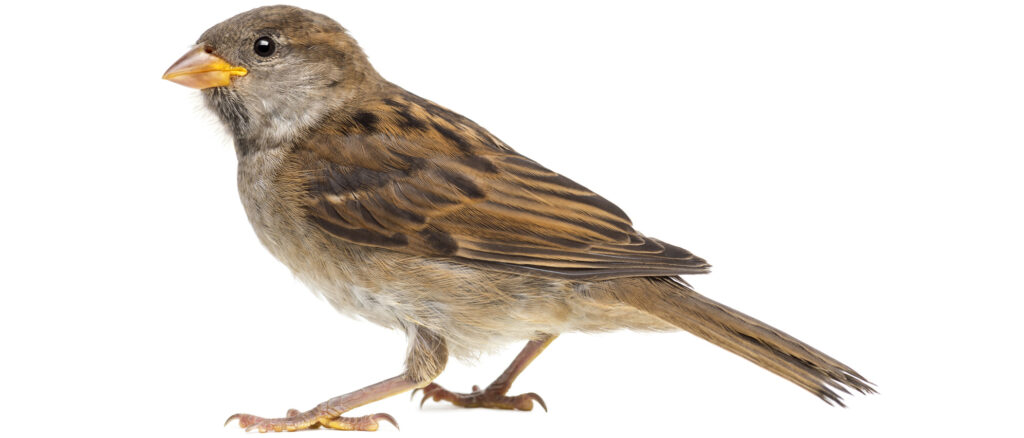House Sparrows

Origins and distribution
Found in the UK, Europe, North Africa and Asia and was introduced to the Americas, South and East Africa and Australia. Estimated population of approximately 14 million birds in the UK and is thought to be in decline.
Characteristics
Male birds are brown with black speckles, grey rump and crown with a white wing bar. Females are a dull brown colour. They are about 120mm in size and weighing about 26 – 34 grams.
Breeding
Sparrows breed from April to August and can lay a clutch of 4 – 6 small grey/white eggs speckled with a darker brown in a nest made from straw or grass. The incubation period is between 11 – 13 days with the young fledged after 21 – 22 days. Breeding pairs may have up to three clutches.
Habits
House sparrows can be seen in large numbers at harvest time as they are a prolific grain eater. They have learned to exploit their urban environment often entering buildings, particularly food premises where they can present problems. Often nest in roof spaces of buildings.
Importance
House sparrows can be a serious nuisance in food handling or livestock environments with a serious risk to health.
How we control House Sparrows
House sparrows are protected under the Wildlife and Countryside Act 1981, under this legislation all wild birds, their eggs and nests are protected. Under this legislation all birds, eggs or nests (when in use or being built) cannot be taken or destroyed or birds killed or taken, except under licence. Individual licences are granted by Natural England to tackle a specific problem, within a specific period of time, in an agreed manner.
Where birds are roosting on buildings or other structures it is possible to proof these with physical barriers such as installing netting to protect areas. Areas such as food establishments can apply to Natural England for licenses to trap and remove these birds from their area. These applications are assessed on a case by case basis and without a licence it is illegal.


















